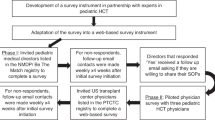Abstract
Presented at the 2015 Annual Meeting of the American Pediatric Society, San Diego, California, USA.
Similar content being viewed by others
Main
My sister and fellow colleagues, it is a great pleasure to be with you this morning. Of course, as a 57-year-old (ahem) “dyslexic” woman, it’s great to be anywhere. I find it amazing to be given the Howland Award, because the credit for anything I’ve done to earn it belongs to many people who have allowed me to stand tall on their shoulders. While it is impossible to name all, you know who you are and to all of you I am very grateful ( Figure 1 ).
However, there are two persons I would like to acknowledge here: the first is my wonderful soul mate, my husband, Dr James Harris, who has been my biggest cheerleader and supporter. He is a pediatrician and neurodevelopmental psychiatrist, the later profession being essential to understanding my sometimes craziness. The other person is my dear sister, Grace Herron, who is a nurse and is here representing my family. It’s a good thing this awarding is not taking place in Baltimore, because my family, who live close by in Pennsylvania, would fill the first few rows in the audience. It’s like that with Italian families.
I would like to share with you some of the lessons I have learned over the years ( Figure 2 ). In the short period allowed, I can’t impart too many, but the following are a few that I think are very important.
The first lesson I call the five Ts. First of all, there are four characteristics of a good leader ( Figure 3 ). You must have tenacity—keep at it no matter how hard when you know something is important. You must be tough minded, not tough, but tough minded, that is, don’t be swayed because others don’t like your idea or method. The next is the most difficult: you must have thick skin and not take things personally or be defensive about your actions. The fourth is you must have a tender heart, fairly easy for pediatricians, to forgive all those who act against you and especially those who ( Figure 4 ) make you a target.
The second lesson is to never underestimate the ability you have to change things ( Figure 5 ). For example, 11 of us journal editors were able to enforce the law that all clinical trials had to be registered at clinicaltrials.gov, when the government did not enforce that important law. That enforcement saved a lot of bogus clinical trials from being published and prevented hiding the results of negative trials.
Use bricks thrown at you to build a firm foundation for your beliefs and positive actions ( Figure 6 ).
The longer you hold on to a grudge, the heavier it gets. Let it go and get on with your life ( Figure 7 ).
Support that only comes from the top is hanging, ask any rustler ( Figure 8 ). You need support from all sides including everyone involved to accomplish any project or mission. For clinicians, that not only includes nurses, but also all others on the health team, including the people in maintenance and ancillary services. Can you imagine what our professional life would be like without their support? Remember to thank them. Also, don’t engage in something because your supervisor dictated it unless you also engender the support of those who would be involved while also remembering the 5 Ts.
Never put your foot in your mouth and then shoot yourself in your foot ( Figure 9 ). Admit your mistakes. Also, remember to apologize when you’ve said something stupid or hurtful.
Allow yourself to be a bit nutsy ( Figure 10 ). Constant normal is boring and can lead to missed opportunities for joy.
Losing your vision is worse than losing your sight ( Figure 11 ). There have been so many blind persons who had great vision and made substantial contributions including the poet Homer, Louis Braille, who developed the Braille system for the blind, and Helen Keller, among others.
When you’re feeling sorry for yourself, visit someone who is really sick, especially a child ( Figure 12 ). And when you visit that sick child, do it as a human being who is sad or hurting and not as a treating doctor.
Find someone or something to make you laugh every day, even if it only means looking in the mirror ( Figure 13 ). That gets easier as you age. I love it when someone I haven’t seen in a while tells me that I haven’t changed. I respond by stating, “You mean I looked this bad years ago”?
Every day ask yourself, “Who am I” and then consider what you did that day to define who you think you are ( Figure 14 ). This may be the most important lesson that will keep you centered and going in the right direction with your life.
As I finish, I once again say thank you for this wonderful award to the many who helped me to receive it and to those in the audience who are here with me now ( Figure 15 ). May your lives be filled with good health and happiness.
Acknowledgements
Images and/or photos in this address are the copyrighted property of 123RF Limited, their Contributors, or Licensed Partners and are being used with permission under license. These images and/or photos may not be copied or downloaded without permission from 123RF Limited.
Author information
Authors and Affiliations
Corresponding author
PowerPoint slides
Rights and permissions
About this article
Cite this article
DeAngelis, C. American Pediatric Society 2015 presidential address: life’s lessons learned. Pediatr Res 78, 597–600 (2015). https://doi.org/10.1038/pr.2015.139
Published:
Issue Date:
DOI: https://doi.org/10.1038/pr.2015.139

















